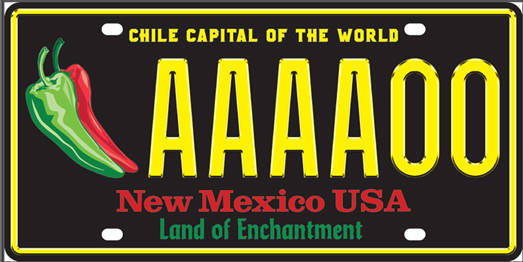America the Flavorful
September 20, 2018
“Art enables us to find ourselves and lose ourselves at the same time.”
~ Thomas Merton

Paul Abbas/P.A. Boards
Having grown up in a city that was located just a few miles from a popular surf spot, the culture and music associated with surfing were an influential part of my youth. In 1994, when the opening credits of Quentin Tarantino’s masterpiece of a movie, Pulp Fiction, flashed across the screen to the tune of Dick Dale’s rendition of “Misirlou”, the surf rock guitar sounds of the classic instrumental were already familiar to me.
Not long ago, I came upon a YouTube clip of modern day musicians in Japan performing the tune on traditional Japanese instruments. As I watched and listened, I noticed something that hadn’t occurred to me in listening to the surf guitar versions: a distinctly Greek/Armenian flavor.
I studied belly dancing in my late teens and 20s and my teacher had introduced her students to the music of John Bilezikjian, a master oud player. Years later, a surf guitar classic being played on traditional Japanese instruments was taking me back to the days when I would sit next to my record player and practice playing my finger cymbals to Tsifteteli rhythms. I decided to do some research.
It only took a few clicks to discover that the song “Misirlou” had Eastern Mediterranean origins, as did the man who made it an American rock classic. The King of Surf Guitar, as Dick Dale has come to be known, was first inspired by an uncle who played the oud.
Dick Dale’s birth name was Richard Anthony Monsour. His paternal grandfather was from Beirut. Dale’s father was born in Boston, Massachusetts (as was Dale), but spent much of his childhood in Lebanon. Both Dale and his father grew up speaking Arabic. One of Dale’s early musical influences was his uncle, an oud player, who taught him tarabaki drumming. In a 2006 interview, Dale talked about playing with his uncle at a popular Lebanese nightspot in Boston while their relatives belly danced. When the family moved to El Segundo, California (adjacent to the town where I grew up), Dale took up surfing and, eventually, the guitar.
At a local show in 1960, a 10-year-old boy walked up to Dick Dale and asked him a typical 10-year-old-boy type of question: could he play an entire song on one guitar string? Dale assured him that, if the kid returned the next day, he’d fulfill his request. He then spent the entire night trying to think of a composition that would work. Finally, his youthful memories provided him with the solution. “Misirlou” was a traditional tune his uncle had often played. Dale made it rock n’ roll by playing it super fast, and his signature song was born.
In a beautifully poetic twist, surf culture has found its way to Lebanon in recent years. The photo of a young surfer waxing her board at the top of this post was taken in Beirut, where Dick Dale’s grandfather was born before immigrating to the United States.
Considering the tasty musical gift that Lebanon has given us by way of Dick Dale and the classically Californian surf guitar genre, it’s only fitting that we return the flavor.
~~~
Here is Dick Dale’s version of Misirlou, from the 1963 film A Swingin’ Affair:
Here is the classic version, from a 1927 recording:
Finally, here is the more recent Japanese version that inspired my discovery:
https://www.youtube.com/watch?v=UEeOuQz9BgI
~~~~~~~~~
Green Chile Beef Sliders are mini burgers with a distinctly Southwestern Flavor.

Green Chile Beef Sliders
Sliders are mini-hamburgers. You can serve one or two as an appetizer, or more for a meal.
Here in the Southwest, Hatch green chilies, a New Mexico specialty, can still be found in a well-stocked produce section. I like to roast and freeze a few to use throughout the year. If you can’t find them fresh, or you live outside the region, you can also find them canned any time of year, which works fine for this recipe.
Hearst Ranch beef is in season now. If you’ve ever driven up PCH to Big Sur, you’ve seen the cattle grazing freely in the hills near the highway. Eel River Ranch beef is another 100% grass-fed, humanely raised variety from Humboldt County. You can also click on the link for the Eat Wild site up and to the right of this page, under the heading “Elaborations”, to find humanely raised, pastured or grass-fed beef near you. Click on the link, then click on your state within the map shown. Scroll down the list of sources with descriptions of each ranch.
1 lb ground pastured/grass-fed beef (85% or 90% fat)
1 teaspoon chili powder
1/2 teaspoon cumin
1/2 teaspoon smoked paprika
1/2 teaspoon crushed, dried oregano
1/8 teaspoon garlic powder
1 & 1/2 teaspoon salt
1/2 teaspoon vinegar
2 tablespoons diced roasted green chilies
2 green onions, cleaned, trimmed and finely chopped
To serve:
10 mini buns or rolls
Desired condiments:
Mayo and/or mustard
Cheddar, Jack or Pepper Jack cheese
Sliced cherry tomato
Pickle slices
Mix beef, chili powder, cumin, smoked paprika, oregano, garlic powder, salt, vinegar, green chilies and onions in a medium bowl. You may find it easiest to mix using clean hands. Cover and chill for 15 minutes.
To easily form the sliders, rinse your hands in cold water. Divide the mixture into tenths and shape each portion into a 2 & 1/2-inch disk. Patties can be made to this point and refrigerated or frozen until ready to use.
Heat a non-stick skillet over high heat, lightly coated in olive oil (about 1 tablespoon). Fry the sliders on both sides to desired doneness: About 3 minutes per side for a pink center and 4 minutes per side for cooked through. If making cheese sliders, add cheese after turning. Drain and serve immediately with buns or rolls and desired condiments.
Makes 10 sliders
Recent Comments